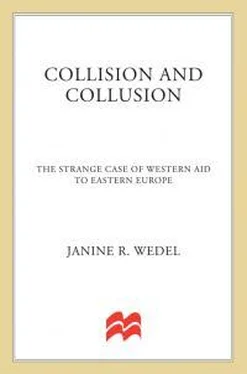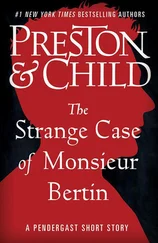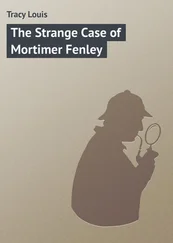190. See Williamson, Contagion: The Betrayal of Liberty, chapter 13. See also United States District Court, District of Massachusetts, Civil Action no. 00CV11977 DPW, United States of America, Plaintiff, v. The President and Fellows of Harvard College, Andrei Shleifer, Jonathan Hay, Nancy Zimmerman, and Elizabeth Hebert, Defendants.
191. Interfax in English, October 20, 1997.
192. Peter Henderson, “Russia Oligarchy Risks Peril in Asset Fight, Soros,” Reuters, March 4, 1998, reported in Johnson’s Russia List, no. 2093, March 5, 1998.
193. Radio Free Europe/Radio Liberty Newsletter, January 4, 1999, www.nupi.no.
194. RFL/RL Newsline, vol. 1, no. 99, part 1, August 20, 1997.
195. One of these men was Arkady Yevstaviev, who also was a key player in an earlier scandal involving the USAID-paid public relations firm Sawyer Miller. Under a USAID-paid contract to Sawyer Miller, the Chubais Clan used USAID-funded “public education” efforts to further their political agendas. According to Sawyer Miller representatives, Yevstaviev was responsible for the scandal in which the slogan that aired on television during the election campaign of 1993 was changed from “Your voucher, your choice” to “Your choice, Russia’s Choice.” “Russia’s Choice” was the name of Chubais’s political party. (See Janine R. Wedel, “Clique-Run Organizations and U.S. Economic Aid: An Institutional Analysis,” Demokratizatsiya: The Journal of Post-Soviet Democratization, vol. 4, no. 4, Fall 1996, pp. 580-581.)
196. In a strange side story, Kokh arrived in New York in the spring of 1998 with an armful of notes that he gave to an “instant books” publisher, which assembled and printed a “book” about Russian privatization in a matter of weeks. Allegedly, this was an attempt by Kokh to escape prosecution in Moscow. (See Williamson, Contagion: The Betrayal of Liberty: Russia and the United States in the 1990s, chapter 13.) Later, in December 1998, Kokh was denied entry to the United States, having been implicated in dubious privatization deals and accused of corruption in Russia.
197. Fred Weir for the Hindustan Times, reported in Johnson’s Russia List, no. 1367, November 15, 1997.
198. “Prosecutors Examine Chubais’s Activities,” RFE/RL Newsline, vol. 2, no. 39, part 1, February 26, 1998.
199. Russian television reported on May 28, 2000 that, during his recent trip to Washington, Chubais “was received at the highest levels—he met with Vice President [Albert] Gore, State Secretary [Madeleine] Albright, her deputy [Strobe] Talbott and Secretary of Treasury [Lawrence] Summers” ( Vremya, ORT TV Channel, May 28, 2000, reported in Johnson’s Russia List no. 4339, June 1, 2000).
200. Kommersant Daily, September 8, 1998; Los Angeles Times, September 9, 1998.
201. Michael R. Gordon and David E. Sanger, “Rescuing Russia: A Special Report; The Bailout of the Kremlin: How U.S. Pressed the IMF,” New York Times, July 17, 1998, p.A1.
202. Adam Podgorecki, “Polish Society: A Sociological Analysis,” Praxis International, vol. 7, no. 1, April 1987.
203. Summers, “The United States and Russia, Part II: Russia in Crisis,” U.S. House of Representatives, Committee on International Relations, Washington, D.C.: U.S. House of Representatives, September 17, 1998, Hearing transcript, pp. 29-30.
204. See, for example, Barry Wood, “Russia’s Economy,” Voice of America, January 3, 2000 also in Johnson’s Russia List, no. 4009, January 4, 2000; and “The State of the (Former Soviet) Union,” Washington, D.C.: Carnegie Endowment for International Peace, January 6, 2000, also in Johnson’s Russia List, no. 4031, January 13, 2000.
205. Putin worked under Pavel Borodin, the Kremlin’s property manager, who has been linked to the Mabetex scandal. Swiss prosecutors have alleged that Mabetex Project Engineering, a Kremlin contractor, paid tens of thousands of dollars in credit card bills for members of the Yeltsin family. In one of his first acts, Putin signed a decree protecting Yeltsin from future prosecution and providing him with amenities such as a residence and a pension. See Paul J. Saunders, “The Real Vladimir Putin: A New Leader in the Old Mold,” Washington Times, January 6, 2000, p. A15.
206. See, for example, Paul Starobin, “The Brain Trust Polishing Putin’s Image,” Business Week, January 31, 2000.
207. János Kornai, Economics of Shortage, Amsterdam, the Netherlands: North-Holland, 1980.
208. See, for example, Joseph L. Albini, R. E. Rogers, Victor Shabalin, Valery Kutushev, Vladimir Moiseev, and Julie Anderson (“Russian Organized Crime: Its History, Structure and Function,” Journal of Contemporary Criminal Justice, vol. 11, no. 4, 1995, pp. 213-243). They explain that Russia’s historical inheritance of tsarism produced a system in which patrons and clients became the basic format of social interaction. Also see Merle Fainsod ( How Russia is Ruled, Cambridge, MA: Harvard University Press, 1975), Jerry F. Hough ( The Soviet Prefects: The Local Party Organs in Industrial Decision-making, Cambridge, MA: Harvard University Press, 1969), Jerry F. Hough and Merle Fainsod ( How the Soviet Union is Governed, Cambridge, MA: Harvard University Press, 1979), Robert W. Orttung ( From Leningrad to St. Petersburg: Democratization in a Russian City, New York, NY: St. Martin’s Press, 1995), and Blair A. Ruble ( Leningrad: Shaping a Soviet City, Berkeley, CA: University of California Press, 1990).
209. Personal letter from Lebed spokesman Vladimir Titov, August 28, 1996.
210. Komsomolskaya Pravda, May 1997.
211. Interview with Ronald Childress, former director of Rule of Law Consortium, ARD-Checchi joint venture in Russia, May 6, 1997.
212. “Popular Rule Group Wants Probe into U.S. Agencies’ Presence,” Interfax in English, April 30, 1997, cited in Johnson’s Russia List, May 2, 1997.
213. Thomas A. Dine, “U.S. Aid for the Newly Independent States,” Problems of Post-Communism, vol. 42, no. 3, May-June 1995, p. 29.
214. Interview with Laurier Mailloux, August 13, 1996.
215. Interview with William B. Taylor, August 9, 1996.
216. Interview with Thomas A. Dine, August 16, 1996.
217. Interview with Stanley R. Nevin, August 24, 1996.
218. Federal sources.
219. U.S. General Accounting Office, Foreign Assistance: Harvard Institute for International Development’s Work in Russia and Ukraine, Washington, D.C.: GAO, November 1996, p. 6.
220. Conversations with Louis H. Zanardi of the GAO audit team.
221. S. Razgonov, Moskovskie Novosty, vol. 45, 1991; cited in I. Bremmer and R. Taras, Nations and Politics in the Soviet Successor States, Cambridge, United Kingdom: Cambridge University Press, 1993.
222. See Williamson, Contagion: The Betrayal of Liberty, chapter 3.
223. The Russian “population has suffered increasing hardship” since the ruble devaluation of August 1998. An estimated 38 percent was living in poverty at the close of the first quarter of 1999, as compared with 28 percent one year earlier. Real incomes in June 1999 were 77 percent of their June 1998 level. ( OECD Economic Outlook, December 1999, p. 132.) Further, Russian citizens became poorer in 1999, even though wage arrears and absolute numbers below the poverty line trended down. “The average level of Russians’ real cash income—incomes adjusted to account for inflation—decreased 15 percent,” according to the Russian Statistics Agency. (Yevgenia Borisova, “Poverty Still Widespread Despite Modest Growth,” Moscow Times, January 13, 2000, also in Johnson’s Russia List, no. 4032, January 13, 2000.) An estimated 70 percent of Russians now live below or just above the poverty line.
Читать дальше












